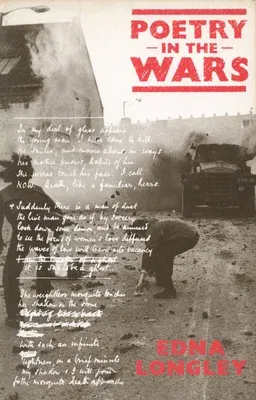In the two world wars - and throughout the Troubles in Northern
Ireland - poets insisted on not serving any political or nationalist
case. As the war poets were attacked for failing to write their
country's battle hymns, so the Ulster poets were victims of improper
'expectations'. In this seminal critical study Edna Longley argues that
while poets as citizens may support various causes, poets as writers
cannot settle for anything less than 'full human truths'. The price of
that imaginative freedom is 'eternal vigilance'. Edna Longley shows how
Edward Thomas wrote for England, but not for its war. How Keith Douglas
kept a moral eye on his subject even as he shot to kill. And yet how an
unjust Ulster 'hurt' Seamus Heaney into poetry. Edna Longley relates
contemporary Northern Irish poetry to the overall history of
20th-century poetry in English. She argues that the most important poets
have stuck quite deliberately to their armoury of difficult traditional
forms, adapting and extending them in response to modern wars,
conflicts, oppression and injustice. In this important collection of
interconnected essays, she also traces the influence of W.B. Yeats, and
considers the work of Louis MacNeice, Robert Frost, Philip Larkin, Derek
Mahon and Paul Muldoon.

